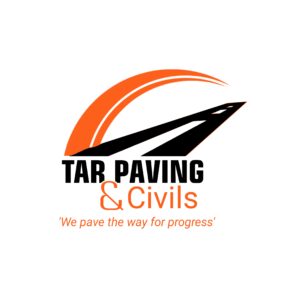
Driveway Paving Options
Choosing the right paving material for your driveway is an important decision that can greatly enhance the overall appearance and functionality of your property. There are several options available, each with its own set of pros and cons. In this article, we will compare the benefits and drawbacks of three popular driveway paving materials: tar, concrete, and block paving.
Paving Materials for Driveways
When it comes to selecting the material for your driveway, there are a few key factors to consider. These include durability, cost, maintenance requirements, and aesthetic appeal. Let's take a closer look at each of the three paving materials:
Tar Driveways
One of the commonly chosen materials for driveways is tar. Tar driveways offer several advantages that make them a popular choice among homeowners: Cost-effective: Tar driveways can be more affordable compared to other paving materials. Easy installation: Tar driveways can be installed quickly, reducing the overall time and inconvenience. Flexibility: Tar driveways have some degree of flexibility, allowing them to withstand slight ground movements without cracking. Recyclable: Tar can be recycled, making it an environmentally friendly choice. Despite these advantages, there are also some drawbacks to consider: Less durability: Tar driveways may not be as durable as other materials and may require more frequent repairs. Maintenance requirements: Tar driveways need periodic sealing to maintain their appearance and durability. Heat sensitivity: Tar can soften and deform under high temperatures, potentially leading to damage.
Concrete Driveways
Concrete driveways are another popular choice, known for their strength and longevity. Here are the advantages of choosing concrete for your driveway: Durability: Concrete driveways are highly durable and can withstand heavy vehicles and frequent use. Low maintenance: Concrete requires minimal maintenance, with occasional cleaning and sealing being sufficient. Wide range of design options: Concrete can be colored and stamped to replicate the look of various materials, offering versatility in design. Long lifespan: A well-maintained concrete driveway can last for several decades. However, concrete driveways also have some disadvantages: Higher cost: Concrete driveways are generally more expensive to install compared to tar driveways. Cracking: While concrete is durable, it is still prone to cracking over time, especially in areas with extreme temperature fluctuations. Difficult repairs: Fixing cracks and damages in concrete driveways can be challenging and may require professional assistance.
Block Paving
The third option to consider is block paving, which involves using individual bricks or blocks to create a driveway surface. Here are the advantages of block paving: Design flexibility: Block paving offers a wide range of design options, allowing you to create intricate patterns and unique layouts. Durability: Block pavements are highly durable and can withstand heavy traffic and variations in temperature. Easy repairs: If a block becomes damaged, it can be easily replaced without affecting the rest of the driveway. Permeability: Block paving allows water to drain through the gaps between the blocks, reducing the risk of standing water and facilitating better drainage. Despite these advantages, block paving also has some considerations: Higher cost: Block paving can be more expensive than other options, especially if you choose premium materials. Installation time: Installing block paving can be more time-consuming compared to tar or concrete driveways. Maintenance: Weeds can grow between the blocks, requiring regular maintenance to ensure the driveway stays clean and in good condition. Uneven surface: The surface of a block paving driveway may be uneven due to settling or movement of the blocks over time.




What Is Better for a Driveway: Tar or Brick?
Choosing the ideal paving material for your driveway ultimately depends on your specific needs and preferences. Both tar and brick driveways have their unique advantages and disadvantages that you should consider: Tar driveways are a cost-effective option that provides flexibility, easy installation, and recyclability. However, they may not be as durable as other materials and require regular maintenance to ensure their longevity. Tar driveways are a suitable choice for those looking for an affordable and quick solution. Brick driveways, on the other hand, offer exceptional durability, design flexibility, and easy repairs. While they may have a higher upfront cost and require more time for installation, brick driveways can elevate the aesthetic appeal of your property and provide a long-lasting solution. Ultimately, your choice between tar and brick driveways will depend on your budget, desired aesthetics, and willingness to invest in maintenance and repairs. Before making a decision, it is recommended to consult with a professional contractor who can assess your specific driveway requirements and provide expert advice tailored to your needs. Remember, a well-designed and properly installed driveway can enhance the curb appeal of your home and add value to your property. Consider all the factors mentioned in this article to make an informed decision that suits your preferences and budget.
Find out more :
